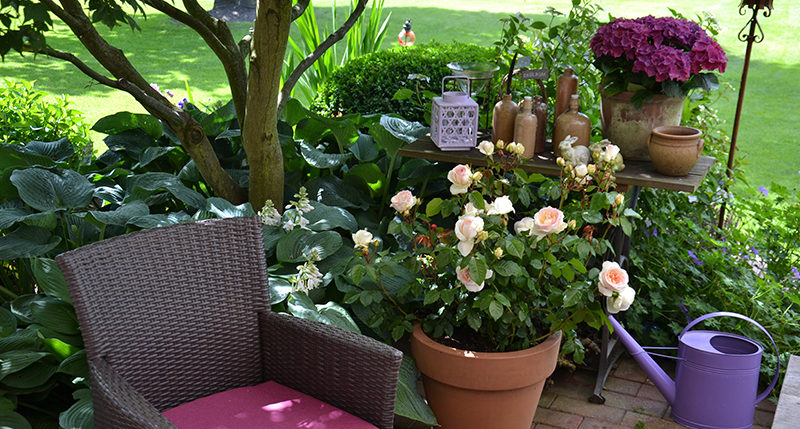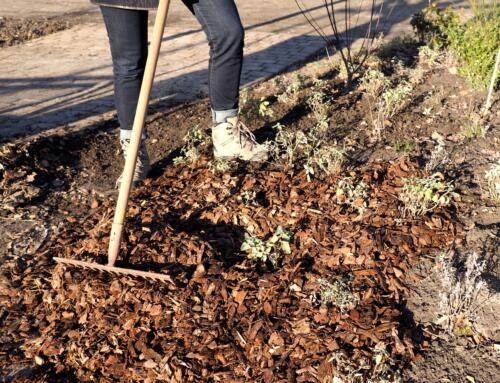Bark mulch in rose borders –
Mulching with this natural product offers numerous benefits
For centuries, roses have been one of the most popular ornamental plants – they are more loved than ever before, because rose breeding has long focused on scent, healthy leaves and producing a multitude of flowers, so that consumers can today choose from a plethora of robust varieties. Irrespective of the variety chosen, the queen of the plant world obviously benefits if plant care is optimal – including covering the ground with bark mulch.
Significant cuts in maintenance time
The benefits bark mulch offers – first and foremost, suppressing weeds, improving the microclimate and reducing plant watering requirements – have long been known to garden enthusiasts. However, some hesitate to use the natural product in borders made of roses. Fears persist that bark mulch could lower the pH value of the soil and impair the supply of nitrogen to the roses. These concerns are unfounded, the Gütegemeinschaft Substrate für Pflanzen e.V. points out – at least, if you use RAL-certified bark mulch.
Quality mark for easy guidance
Bark mulch carrying the RAL quality mark is well seasoned and, consequently, particularly compatible with plants. It is also subject to tight quality inspections performed by approved independent labs. Bark mulch with medium particle size (10-40 mm) is best suited for rose plantings. It reduces evaporation without creating a climate that is always damp and therefore bad for roses. A mulch layer thickness of around seven centimetres has proven ideal to suppress weeds.
Scientifically confirmed
Long-term studies have confirmed the positive impact bark mulch has in both existing and new rose plantings. On the other hand, there has been no evidence of soil acidification or nitrogen fixation. However, anyone wanting to play it safe can work 40-80 grams of horn shavings per square metre into the soil before applying the mulch, ideally in combination with a soil test to avoid over-feeding. Suggestion: Feed bark-mulched borders slightly earlier than usual in spring, because the nutrients take slightly longer to soak through the mulch layer.
Tip: Weed control and winter protection
Mulch material with versatile benefits
Because bark mulch decomposes with time, you should refresh the mulch cover every two to three years. In rose borders, autumn is the ideal time. Use the fresh mulch for mounding up the rose shrubs to provide winter protection. In spring, you can then spread the mulch evenly over the surface of the soil.






